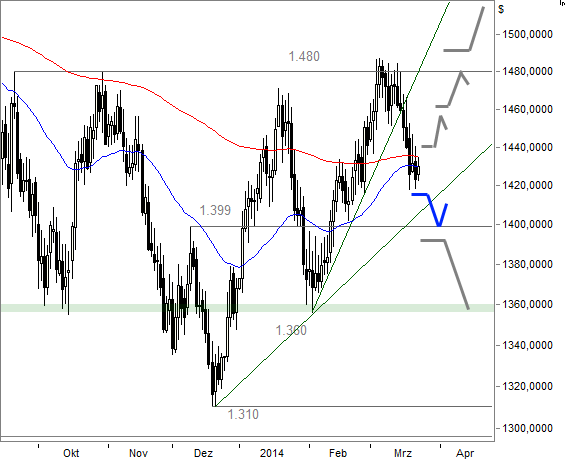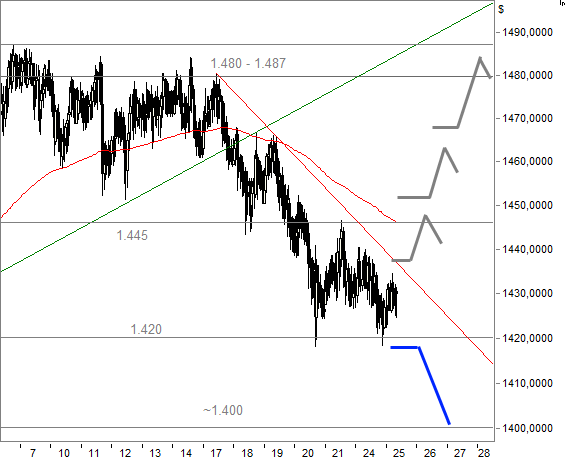Lack Of Gold Rally On Iraq Purchase News 'Horrible' Sign -Analysts
By Debbie Carlson and Allen Sykora of Kitco News
Tuesday March 25, 2014 12:01 PM
(Kitco News) - News reports that Iraq bought $1.56 billion of gold this month offered limited support to prices Tuesday, analysts said.
Bloomberg News first reported Iraq purchased 36 metric tons of gold in March, the largest purchase by a nation in three years. According to the story, the Central Bank of Iraq bought gold to support the Iraqi dinar against foreign currencies. The International Monetary Fund’s website said as of August, Iraq held about 29.8 tons of bullion.
Normally fresh news about a significant purchase of gold by a central bank should support values since central banks are considered long-term gold holders, but April gold futures on the Comex division of the New York Mercantile Exchange as of 11:40 a.m. EDT were up a modest $1.80 an ounce at $1,313 after trading softer earlier in the session.
“This is a horrible sign,” said Sterling Smith, futures specialist at Citibank Institutional Client Group, referring to the market’s inability to rally more strongly after the Iraq news.
Steve Scacalossi, director, head of sales, global metals at TD Securities, agreed.
“News that Iraq has purchased some $1.5 billion of gold - over 1.1 million ounces – (this) month - has not helped at all. The market sentiment is if a million ounces was purchased and we are now lower, what a bearish sign,” he said.
Smith said the small price gains gold is seeing Tuesday can be explained by other factors, such as copper strength following sharp a recent sharp selloff, some short covering after gold fell about $80 from its high earlier this month and reports that China may increase some spending.
Looking back at a price chart, it’s possible that Iraq’s purchase helped propel prices above $1,350 earlier in the month, Smith said.
“It’s possible that they started late February and into March and that may have been why prices moved above $1,350,” he said.
April Comex gold settled Feb. 28 at $1,321.60 and on March 12 settled at $1,370.10, the first time it rose above $1,350 since late October. The contract rose as high as $1,392.60 on March 17, but since then fell sharply.
Prices are now back under the February last-day settlement price and are testing recent technical-chart prices support, analysts said.
“Gold really needs to hold $1,300. It’s critical,” Smith said.
Longer-Term Price Support
Not all analysts viewed the developments bearishly. Phil Flynn, senior market analyst with Price Futures Group, said the Iraqi gold news will be a longer-term supportive feature for the market even if the news did not prompt an immediate sharp surge higher. For the near term, he added, the market seems more focused on the future of U.S. Federal Reserve monetary policy.
“It seems that central-bank (gold-buying) activity is secondary in the minds of a lot of traders,” Flynn said. “But it was definitely an eye-opening purchase. It shows you that Iraq is trying to diversify their economy away from (U.S.) dollars, which they’ve had quite a few of because of their booming oil production.”
Flynn, who is also a veteran energy-market analyst, pointed out that Iraq is suddenly flush with cash with the country’s oil output at the highest level in more than 30 years. Meanwhile, he continued, Iraq’s central bank is likely concerned that the U.S. dollar has not been faring particularly well lately.
“Because they’re sitting on quite a few dollars, they are looking to protect themselves,” he said.
He described Iraq as playing “catch-up” to other central banks that have been buyers in recent years.
“I wouldn’t be surprised if they continued to diversify some of their holdings into gold in the future, because they’re getting a lot of dollars because of their oil exports,” Flynn said.
“It’s another supportive story,” Flynn later added. “When people scratch their heads and say ‘I don’t know why anybody would want to own gold,’ maybe they should call central bankers like in Iraq and the rest of the world and say ‘why are you buying gold?’ Central bankers realize it is a store of value in a world of currency fluctuations.”
[url=http://peketec.de/trading/viewtopic.php?p=1468073#1468073 schrieb:
Klewe schrieb am 25.03.2014, 16:57 Uhr[/url]"] Iraq Buys $1.56 Bln of Gold, Biggest Purchase in 3 Years
By Khalid Al-Ansary and Nicholas Larkin Mar 25, 2014 4:14 PM GMT+0100
Iraq bought 36 metric tons of gold this month valued at about $1.56 billion in the largest purchase by a nation in three years.
The Central Bank of Iraq acquired the metal to help stabilize the Iraqi dinar against foreign currencies, it said in an e-mailed statement. The country held about 29.8 tons of bullion as of August, according to data on the International Monetary Fund’s website. The latest addition was the biggest since Mexico bought 78.5 tons in March 2011.
While nations purchased about 544 tons in 2012 in the largest accumulation in about five decades, acquisitions slowed to 369 tons last year, according to the London-based World Gold Council. Countries will continue buying amounts in the “hundreds” of tons, the producer-funded council said in February. Bullion prices rebounded 9.1 percent since December, after slumping the most since 1981 last year as demand for a store of value waned.
“Gold is quite attractive to central bankers,” Mark O’Byrne, a director in Dublin at brokerage GoldCore Ltd., which has more than $200 million in bullion under management, said today by phone. “They see it as an important asset diversification and a safe-haven element within foreign-exchange reserves.”
Gold for immediate delivery traded at $1,314.77 an ounce in London, after sliding 28 percent last year. It reached a record $1,921.15 in September 2011. Prices averaged $1,344.71 so far this month, valuing Iraq’s purchase at about $1.56 billion.
Iraq’s Reserves
Adding the amount Iraq said it bought in March to its reported holding in August would make it the 40th-largest holder by country, according to the WGC. The nation has no plans to sell metal from its reserves, Muneer Omran, director general of investments at the central bank, said in an interview in Dubai in January.
Bullion had accounted for less than 2 percent of the nation’s total reserves, compared with about 70 percent for the U.S. and Germany, the biggest holders.
“Demand from the likes of Iraq is important,” GoldCore’s O’Byrne said. “It doesn’t necessarily mean it will lead to higher gold prices per se, but it definitely means that there’s an ongoing demand from central banks that is likely to continue” and should support prices, he said.
Mexico owns about 123 tons of the metal, according to the WGC. Turkey’s reserves, at about 488.6 tons now, expanded as much as 44.7 tons in July 2012. Bullion has been added to its balance sheet as a result of accepting gold in its reserve requirements from commercial banks.
Holdings in gold-backed exchange-traded products reached 1,769.6 tons yesterday, the highest this year, data compiled by Bloomberg show. Assets fell to 1,735.4 tons last month, the lowest level since October 2009.








